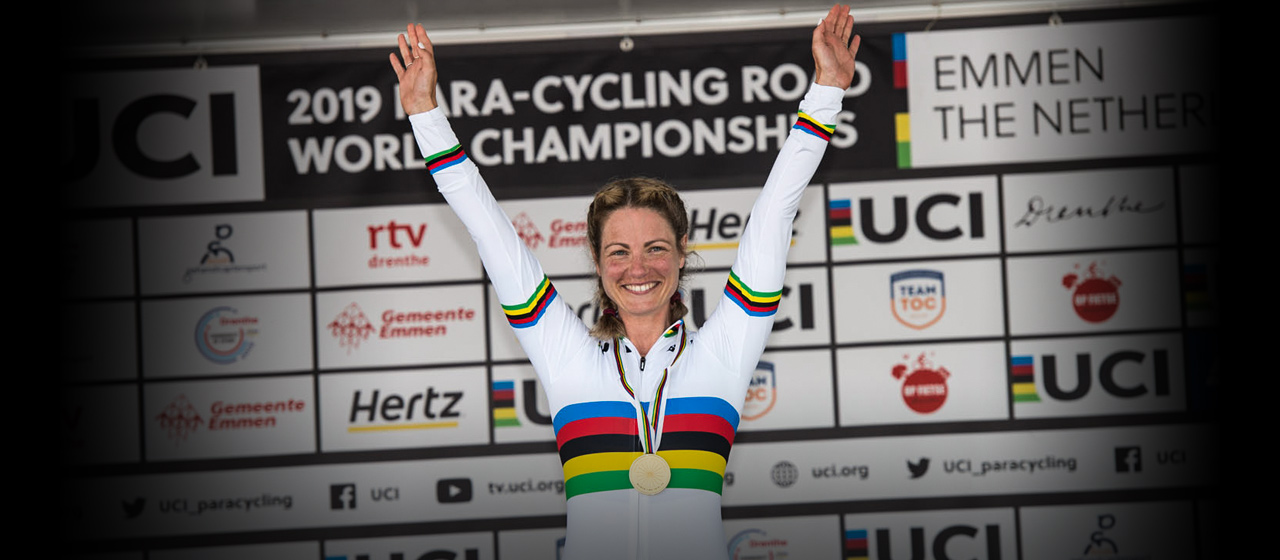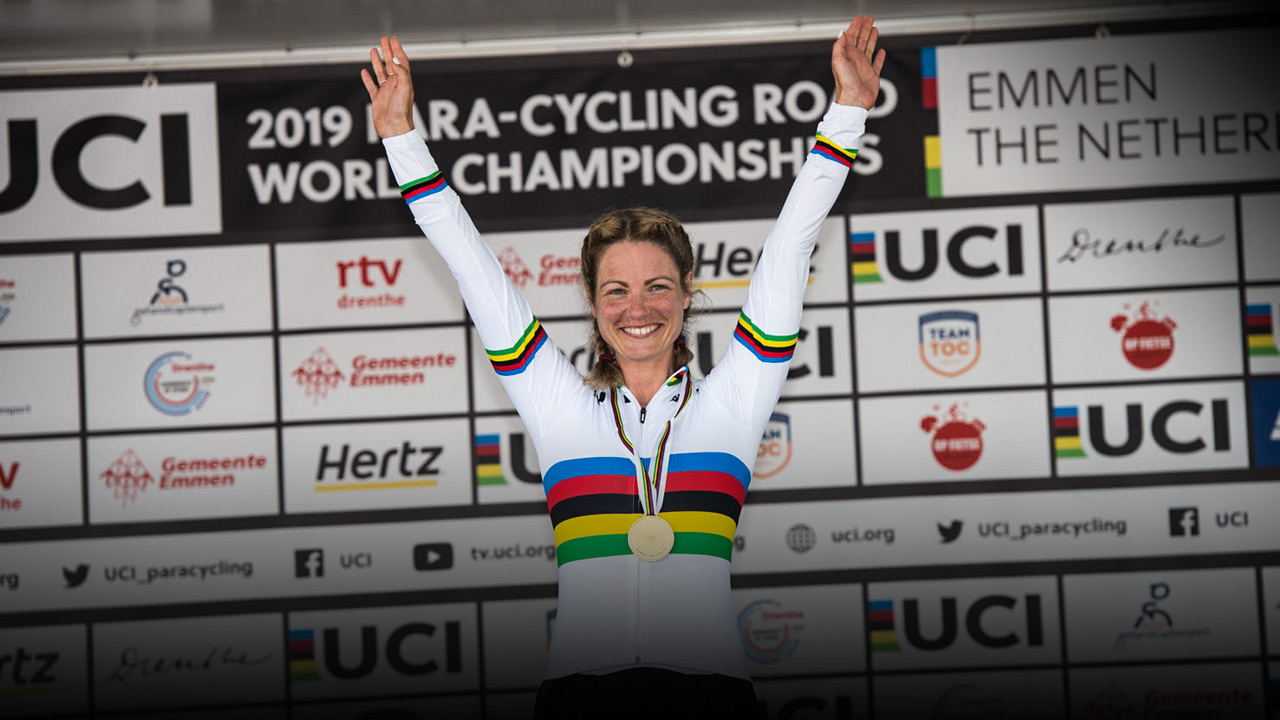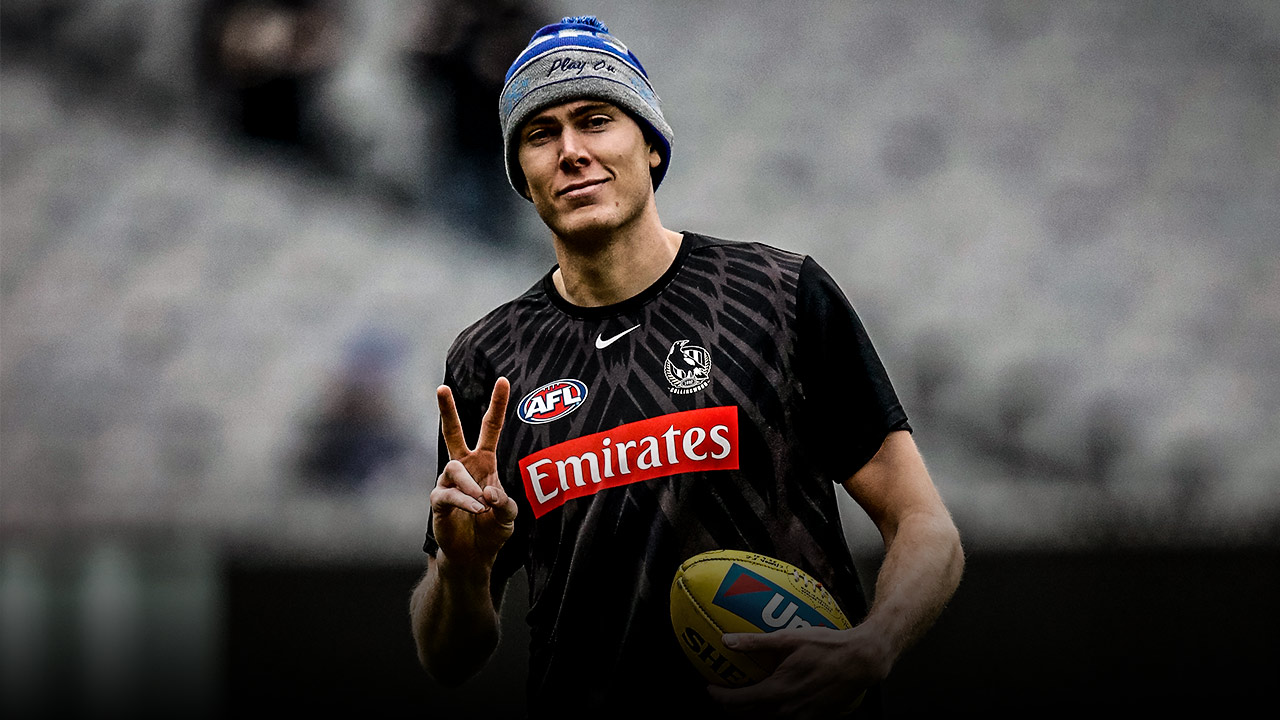Para Sports
Two Olympians who saved my life
In 2007, I was 27 years old, running my own consultancy business and working at a client’s office, where they had polished concrete floors.
I was wearing cute new shoes and kept tripping over. At lunchtime, figuring it was the shoes, I went out and bought a new pair. But the tripping kept happening, and not just on their floors. Over the course of the next week, the numbness that had started in my feet that day started to travel up to my chest.
I couldn’t work out what was going on. I’d been sick with gastro a couple of weeks before, so thought it could be related to that. I thought maybe I’d pinched a nerve and that was causing the numbness. I thought it would settle and kept believing/hoping it would get better on its own.
But the effects continued, and the numbness crept up close to my neck. One night, I called one of my best mates, who lived not far from me, and told her, ‘You need you to call me at seven tomorrow morning and if I don’t answer you need to come around because it means that I can’t walk. I’m scared that I’m about to become paralysed.’
She called me and, when I answered, I promised her that I would go to the doctor the same day.

The ‘queen of denial’
My doctor sent me straight to a neurologist who found a big lesion across my C2 and C3 spine. When they told me Multiple Sclerosis was one of the possibilities, my stomach sank and I knew that was what it would be. It was an intuition.
I was lucky in that the diagnosis was quick. People with MS can go a long time before they get diagnosed and many get misdiagnosed to begin with because the symptoms can be so transient. When they looked at my brain and spinal MRIs and found lesions in both, combined with other results from a lumbar puncture, the diagnosis was swiftly made.
The body numbness was the start. Then within the first couple of years I had some facial numbness, and at the back of my head. I had optic neuritis, so partial blindness and one eye that was pretty much useless for a few weeks.
I didn’t know much about MS before I was diagnosed. I hadn’t heard of it outside of doing the MS read-a-thon while I was at school, but what I’ve learnt is that MS is a disease that attacks the nervous system. Once a pathway is interrupted, they will repair to a point, but how much they repair is dependent on how quickly you get intervention and how significant the lesion/attack is. Each person’s experience with the disease is very individual and there is no set course or cure for it.
For me, some of the ongoing stuff includes the tingling, the pain. I get what’s called an MS hug when it’s too hot, or when I’ve overexerted myself or if I’m too tired, which is where it feels like you’re being squeezed from the inside. I consistently have issues with my hands, which don’t work properly, I have issues with balance and I have foot drop in my left foot – I can’t lift it all the way up so when I walk, I trip a lot because it catches on the ground, on stairs, etc. If I put my head forward too quickly, which is usually when I’m laughing, I’ll get like an electric shock through from my neck to my toes.
I’ve got weakness across all four of my limbs. I’ve got tremors in my arms, sometimes in my legs. I get wicked vertigo without warning. It’s just like a slow disintegration, effectively, of various points in the body. What is incredible though, is seeing how your body finds its way around these limitations and other muscles pick up the slack for those that don’t work the way they should. The brain truly is incredible.

On my race bikes, I can’t really hold on properly. We’re trying to create a grip that makes it easier for me to hold on, in the meantime I’m lucky that after starts in the events I race, I can get onto arm rests quickly.
There’s no way of predicting that you will have MS. I’ve got no family history and they can’t tell me why I’ve got it. It’s just bad luck, effectively, for me. If I was to have children, which I won’t, they would be at a greater risk of having it. You can pass it on genetically but, for me, that wasn’t the case.
It’s not something where they can lay out my future exactly. I feel like that’s better in some ways as then you don’t start to look for things and panic about it.
I’ve been called the ‘queen of denial’ because I prefer not to think about the things that are affecting my body and don’t allow myself to be defined as a sick person, or someone who has this disease. I don’t like to dwell on it. So, for me, classification for competition was really confronting.
I’ve always found it hard and upsetting because you are forced to see all the things that your body can’t do well or at all, and I like to (as much as I possibly can) pretend that there’s nothing wrong with me. Even though I recognise and appreciate that this disease is what has given me this amazing opportunity to potentially compete at a Paralympics, I would rather ignore the reason as to why I have this opportunity as much as I can.
How lucky I really am
Immediately after diagnosis I don’t think it really changed my outlook, because I just wanted to pretend like I could keep going like I had before. Even though my body kept telling me I couldn’t.
Then something happened that altered my view and (I know this sounds ridiculous) taught me how lucky I really am.
I started on a treatment of medication where I went to Melbourne Private Hospital for an infusion every four weeks for six years.
Every fourth Friday I would sit in an oncology ward, being treated alongside people with significant illnesses such as cancer and other autoimmune diseases, and it changed me as a person in the most positive way.
I met the most inspiring and positive group of people. We were all fighting our own battles, but never made it the focus of our experience during treatment, as strange as that may sound. This was the experience that has been most meaningful for me, in terms of everything that’s happened so far.
Even though my disease is horrible, and I wouldn’t wish it on my worst enemy, I’m not dying of cancer today and my illness doesn’t define me or how I operate in my life. There’s still so much of life to be lived for me.

I remember being so scared when I first started on that treatment. It seemed like such a risky drug to take. As with a lot of the newer treatment options for MS, they didn’t know very much about it. I made the mistake of googling and reading about the horror stories elsewhere. My nurse, Jenny, was phenomenal in terms of just keeping me calm and reassuring me about my decision to go on the drug and throughout the time I was on that treatment she helped me through my relapse periods – nurses like her are a godsend to all their patients. I’ll always remember her practical kindness and positivity.
When you go through a life-changing event like illness or some other type of trauma, you realise pretty quickly how important the people around you are. I’ve come to realise how lucky I am in this regard – it is no easy thing to support someone with an illness that is invisible to most. My band of supporters have been incredible – they have consistently kept me afloat.
Beyond the traditional circle of family, there has been a group of people like a second family to me, who have been my biggest support throughout my journey so far; Christine, Kevin, Sarah, Daniel, Jacqui, Matti and Nerita. This is a group who, literally from the second that I said I wanted to try to do this (make the Paralympic team), didn’t even hesitate. They were all like ‘fantastic, we believe you can do it! What can we do to support?’ Which was not something I was necessarily expecting, but so grateful as their belief compounded that given by Olympians Matt Ryan and Shane Kelly.

Life changed in a day
At the time of diagnosis I had my own business. I was really fit and healthy, had been a rower in my younger years and had coached for a long time.
When I was diagnosed it started a long period, around six years, where I couldn’t do any physical activity. I was about 62-63 kilos when I was diagnosed and post-diagnosis I became enormously overweight. My heaviest known weight was 115 kg (once I reached this I didn’t go near a scale for a while).
Every time I had a relapse, I had to go on massive doses of steroids which add weight. At the same time, I couldn’t do any exercise. Every time I tried, my body would shut itself down and do strange MS things making it impossible to exercise. I literally couldn’t walk around the block without my body telling me ‘No.’ And I ate a lot of peanut butter toast.
I’ve got a before photo and then a photo of me, maybe a year or two after I was diagnosed, and whenever I talk to kids at schools it’s one of the first things that I show. They can’t believe it’s the same person.
Getting sick also meant I had to shut my business down and go to work for other people for the first time since I was at uni. I felt I had lost my whole identity. That my life changed in a day.
More about: AIS | Disability | Para Sport | Paralympics | Resilience | Tokyo 2020






 Load More
Load More